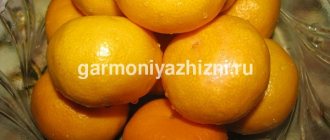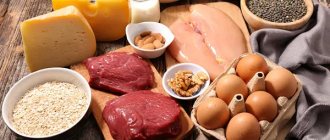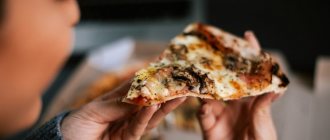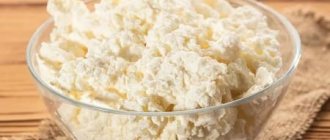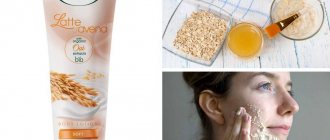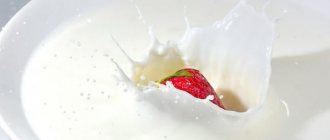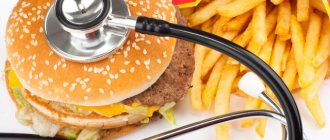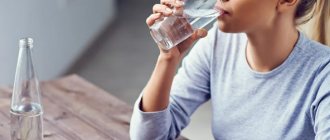Potato
In Russia, potatoes are consumed quite often. This is one of the diet-forming products. But few people know that potatoes with green “barrels” contain solanine: this is a plant glycoalkaloid, it is produced in light and gives the skin a green color.
Artem Ovod
k.b. n. RGAU-MSHA named after K. A. Timiryazev, head of analytical
– All colored formations on the root crop should be cut off. If the formation is extensive and covers more than half of the tuber, then it is better to discard such a tuber. Eating solanine can cause severe poisoning, vomiting and even hallucinations. During heat treatment, solanine is completely destroyed only at temperatures above 250 ° C, that is, during normal cooking or frying, it still remains in some quantity in the final product.
- The content of solanine in different parts of potatoes varies: in unripe tubers - about 1%, in sprouts - no more than 0.5%, and in the peel of tubers its lowest content is no more than 0.06%.
- In addition to the alkaloid, potatoes can be harmful due to the fumes from the rotting fruit, which emit large amounts of carbon dioxide.
Mushrooms
Experienced mushroom pickers know that not only fly agarics, false mushrooms and toadstools can be dangerous. Even an edible mushroom can pose a risk of poisoning if it is old and wormy. Overripe mushrooms produce toxic substances, protein decomposition products, which can cause poisoning.
– We take the freshness of meat and fish products very seriously. But usually such seriousness does not apply to mushrooms, although rotting mushrooms are no healthier than rotting meat,” explained Maxim Dyakov, mycologist, leading specialist at the Faculty of Biology of Lomonosov Moscow State University.
In addition, mushrooms are distinguished by an osmotrophic type of nutrition; they absorb nutrients over the entire surface of the body (mycelium). If the soil, forest floor or wood on which mushrooms grow contains heavy metals, radionuclides, agricultural pesticide residues and other toxic compounds, they end up in the fruiting bodies of the mushrooms that we collect.
Cherry
Cherry, or rather its pit, contains amygdalin. If you crack, chew, or otherwise damage a seed, you will immediately expose your body to hydrogen cyanide, or cyanide.
“If you swallow a few seeds, nothing will happen.” The body can handle some cyanide, but large amounts can be dangerous. Depending on the dose, this can be fraught with increased blood pressure or dizziness, noted Artem Ovod
.
The published lethal dose of cyanide is 1.7 mg per kg of human body weight (approximately 70-100 nucleoli).
What should you not eat if you have irritable bowel syndrome?
Pain in irritable bowel syndrome is triggered by stretching or, conversely, spasms of the intestine. Therefore, the diet for IBS is aimed at eliminating the factors that cause it. Excessive pressure on the intestinal wall is caused by increased gas formation and a large amount of feces (retained in the intestine due to constipation). Flatulence and impaired intestinal motor function occur both due to errors in the diet and due to impaired functioning of the organs that produce digestive enzymes. Therefore, for those with irritable bowel syndrome, the diet excludes the following foods:
- Irritating substances - marinades, hot spices, alcohol, sour vegetables and fruits, foods high in salt, caffeine, smoked foods.
- Products that cause fermentation and flatulence - fresh fruits and vegetables in large quantities, legumes, carbonated drinks, sweets, whole milk, rye bread, kvass.
- Products that negatively affect the functioning of the liver and pancreas are fatty meats and fish, animal fat (butter, lard), fried foods.
- The most suitable way to cook food is to steam it, boil it or bake it in the oven.
Nutmeg
Nutmeg contains a psychoactive substance – myristicin. The chemical component causes a hallucinogenic, stimulating effect on the central nervous system. But you shouldn’t be afraid of it in small quantities in ready-made dishes or drinks. It can only cause harm in large enough quantities. Therefore, it is not recommended to consume more than 10 g of nutmeg per day (the average norm for children and adults). The norm of nutmeg for the human body is 0.33 g per 1 kg of weight.
Therapeutic diet for IBS
For people with irritable bowel syndrome, diet plays an important role in treatment. Patients are recommended to eat 5-6 times a day in small portions, without taking long breaks between meals.
It is better to adhere to a certain meal schedule - this helps to normalize the functioning of the digestive glands. The diet will be even more effective if you keep a diary of your daily diet, which will help identify foods that lead to an exacerbation of the condition. This way you can adjust the sample menu and achieve a speedy recovery.
To select a diet, it is important to establish the prevailing symptoms of the disease, since nutrition for irritable bowel syndrome with diarrhea and constipation will be significantly different. Only a gastroenterologist can do this correctly. But there is also a list of foods that should not be consumed for any form of IBS.
Tomatoes
The ripe tomato fruit itself is harmless, but at the same time, the stems, leaves, and green fruits of the plant contain a toxin that causes headaches and stomach upset. This is solanine, already familiar to us from potatoes. Tomatoes and potatoes belong to the nightshade family, the shoots, stems and leaves of which are poisonous.
– Solanine is a toxic substance, and it is also found in large quantities in green tomatoes. Therefore, lovers of such fruits should be careful when eating them. It’s better to wait a little for the tomatoes to ripen until they at least turn a milky color,” explained Artem Ovod
.
When the fruit turns pink or red, the solanine content is reduced to a minimum and the fruit becomes safe to eat. Before eating tomatoes, it is necessary to cut out the stem, as it also contains solanine.
Conservation vs Concentration
Solanine during heat treatment is destroyed only after heating above 250°C. Boiling and even frying (the boiling point of the oil does not exceed 180 °C) will not completely destroy the natural toxin. But preservation reduces the amount of solanine. You can partially get rid of the unwanted substance by soaking finely chopped parts of tomatoes in salt water for some time. This method reduces the concentration of a dangerous alkaloid.
An empty stomach is not ready for bed!
Recently, nutritionists are increasingly arguing that fasting sleep is illiterate. In such a situation, metabolic processes do not occur fully, and the peace of sleep is disturbed. True, they also argue that you shouldn’t overeat in the evenings.
Where is the reasonable balance that will benefit both metabolism and sleep?
First, you need to learn to adhere to measures. Analyze the volume of your evening plate. It should not exceed the scale of a regular glass or your handful. This amount of food eaten will not put pressure on the internal organs and prevent the lungs from working fully.
Secondly, it wouldn’t hurt to count calories. The most healthy portion is 200, sometimes 250 calories.
Thirdly, it is harmful to eat food immediately before bed. The best option is 2 or even 3 hours before going to bed. Light food will be almost digested during this time. There are no threats to a slim figure, which means that excess weight will not appear, which is often the cause of snoring and apnea.
Apples
The fruit, or rather the peel and pulp, are very useful; they do not pose the slightest danger to the body. The same cannot be said about seeds. It is safe to eat only a few apple seeds, which contain hydrocyanic acid. But damaged seeds additionally release small amounts of cyanide, which, as we already know, is also considered highly toxic. Apple seeds contain about 0.4 mg of cyanide - this dose may be enough for a weak body to cause poisoning.
Elder
Unripe black elderberry fruits also contain hydrocyanic acid: eating such berries can easily cause poisoning. Therefore, it is recommended to include fully ripe berries in the diet; usually their ripeness occurs in late August or early September. At the same time, you can cook compote from unripe fruits - heat treatment will help get rid of the poison.
Thank you for reading this text to the end. Follow the news, subscribe
mail.
When quoting this material, active link to the source
required.
Nutritionists named foods that should never be eaten
Spanish nutritionists have refuted the myth about the “benefits” of a couple of glasses of wine or beer a day. In addition, they named the most harmful food products for humans, reports the newspaper La Vanguardia
.
“We constantly hear about the benefits of a couple of glasses of wine or beer a day, but this opinion is not just false, but truly barbaric. It's best to simply avoid drinking alcohol or overly processed foods. Never,” emphasized Pilar Esquer, a professor at the Gasma School in the province of Castellon.
According to nutritionist Maria Merino, refined flour is harmful - it causes fluctuations in blood glucose levels and is much less nutritious. Eating such flour can lead to diabetes. Instead of this product, experts suggested switching to whole grain flour.
As Merino advises, you need to give up sausage and ham - these products are half made of starch, various additives and other substances, not meat.
In addition, low-fat dairy products are harmful - they contain more sugar, and the nutritional value of such food is lower. You should also avoid eating processed foods, baked goods and snacks – these products contain a lot of sugar, trans fats and salt.
In June, scientists at the University of Sussex in England made a statement that the artificial sweetener aspartame may be dangerous to human health, MedicalXpress reports. According to researchers, the European Food Safety Authority (EFSA) discounted the results of scientific research revealing the harmfulness of the additive.
It notes that since 1974, experts have warned of the risks of brain damage, liver and lung cancer, brain damage and neuroendocrine disorders from consuming aspartame, which is found in thousands of products, including diet soft drinks.
This is not the first time that the refutation of the myth about the “benefits of a glass of red wine” mentioned at the beginning of the article has been supported by experts. In August, the head of the department of cardiac surgery at the Vishnevsky National Medical Research Center for Surgery of the Russian Ministry of Health, cardiovascular surgeon Vadim Popov, said that the opinion about the positive effect of one glass of red wine a day on the heart has no scientific confirmation. Studies have shown that it does not affect blood vessels in any way. However, this dose is not considered large, so you can afford it as a means to relieve stress.
Previously, scientists from the University of Massachusetts at Amherst found that food fried in vegetable oil can lead to complications of cancer.
According to researchers, many people in the United States, to one degree or another, have problems with the gastrointestinal tract, but do not deny themselves the pleasure of eating fast food and unhealthy fried foods.
In order to obtain the necessary information, scientists conducted experiments on mice: the tumor in rodents doubled in size, and colitis also progressed. The researchers offered their subjects food combinations, including those prepared using less harmful olive oil. Experiments proved that vegetable oil worsened the health of the rodents in every case.
In addition, fatty foods are one of the factors that increase the risk of cancer.
Earlier, American scientists from Tufts University identified the main causes of cancer. With excess sugar consumption, the risk of developing a malignant tumor greatly increases. The researchers conducted experiments on laboratory mice. One group was given sugar in amounts comparable to what humans would consume, while the others were on a “starch diet.”
The researchers concluded that the increase in blood sugar levels in the first group caused the rapid growth of the tumor. In addition, the scientists found that high fructose corn syrup and table sugar led to an increase in metastases in mouse lungs.
Experts advise limiting your sugar intake to minimize your risk of cancer, diabetes, obesity and cardiovascular disease. In addition, scientists drew the attention of consumers to products with “hidden sugar” - candies, ice cream, jam, jellies, packaged juices, yoghurts, baked goods, etc.
Scientists recommend replacing sweets with fruits, and table sugar with honey.
